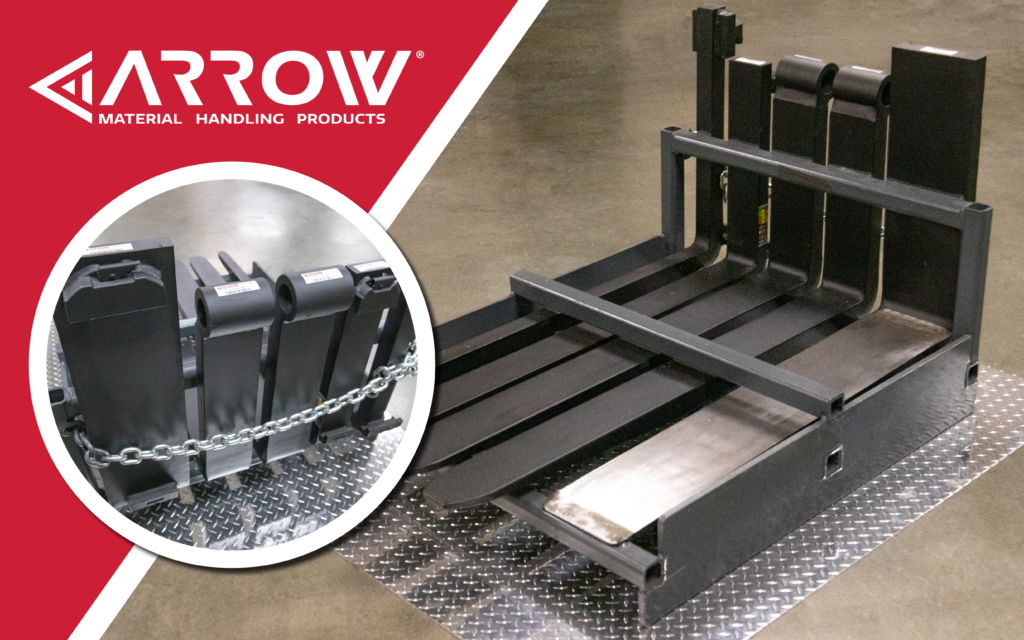Four Factors to Look For When Purchasing

Not all forklift forks are going to be the same. This may or may not be obvious to those who have been tasked with purchasing new forks only to find themselves overwhelmed by selection. It’s so easy to get wrapped up in price and delivery—buying whatever is cheap and quick—that the actual quality of the forks may sometimes be forgotten.
As an example, a pair of Standard ITA Forks from three separate companies can look almost identical to each other, but also be vastly different in quality. Use the following tips to help you determine fork quality before you buy.
- Steel quality: All forks are made from steel but not all steel is created equal. That’s why when shopping for forks it’s incredibly important to take note of the type of steel your forks are made out of. 40CR steel is a standard alloy steel, and although it does meet ANSI/ITSDF and ISO standards, there are much better steel compositions out on the market for forks. Arrow, for instance, uses 15B37H carbon-boron alloy steel. This particular type of steel has a lab-proven impact toughness far exceeding that of the 40CR steel. This translates to a product that is less susceptible to cracking, thus, extending the overall life of the forks.
- Heat-treating: A surefire way to increase the quality of a pair of forks is by heat-treating them. This significantly reduces the chance of wear and/or cracks when handling heavy loads or dealing with high impacts for all climate conditions (extreme hot or cold). While shopping for forks, you’ll not only want to make sure that they’ve been heat-treated, but more specifically, that the entire length of the fork has undergone this process—not just the heel. Arrow heat-treats the entirety of every fork it produces to ensure the highest quality product in every part of the fork.
- 3rd party governing standards: Many companies will tell you they have the best forks. They’ll tell you they’re #1 in product quality and have the most reliable forks in the industry. But how can you know for sure? In order to go to market, forks must pass certain standardized tests—most notably—the standards set by ANSI/ITSDF and ISO. If you want to ensure the forks you’re about to buy are high quality, make sure that they comply with these standards. Don’t just listen to what the company says about their product; listen to what other organizations are saying as well. All Arrow forks meet or exceed all ANSI/ITSDF and ISO standards.
- Warranty: Last but not least is the warranty. When you purchase forks, you always want to make sure you’re protected. Buying forks that aren’t under warranty—no matter how inexpensive they are—is a risk you simply shouldn’t take. This is why Arrow offers a three-year limited warranty on products with any defects due to material or workmanship on the entire line of our fork products. When you buy, you should be able to buy with confidence.
To recap, fork quality isn’t determined by price. Price is typically determined by fork quality. Be mindful of steel composition, how the fork was made, and whether or not the product is meeting or exceeding the standards set forth by ANISI/ITSDF and ISO. And never buy forks that aren’t under warranty.
Arrow Forks can be viewed by clicking HERE. We have the largest stock and widest selection of forks in the country; we even do custom orders based upon your design with lead times averaging 3 – 5 days.
If you have any questions, please contact us at (800) 821-7563 to speak with our sales department.
